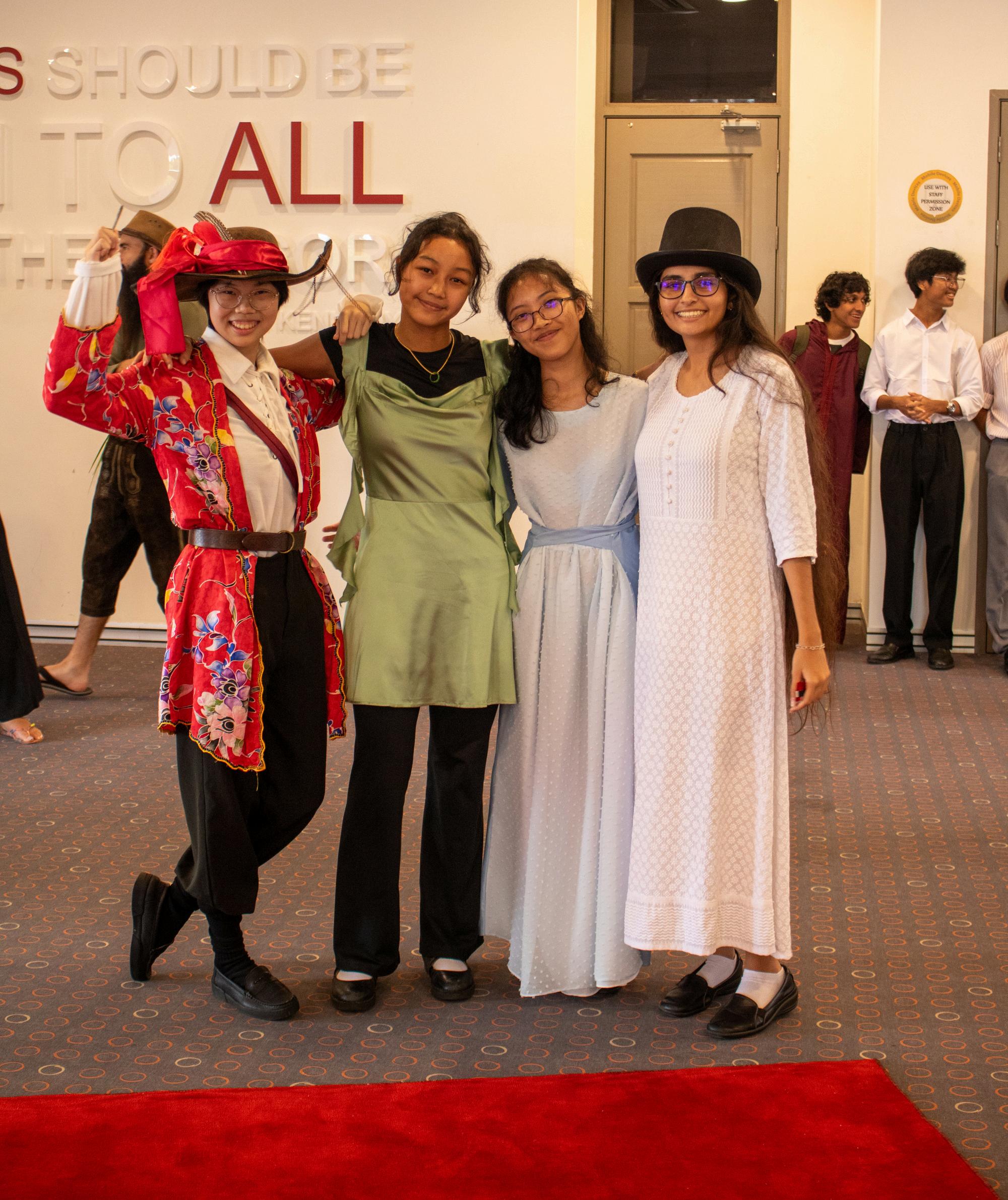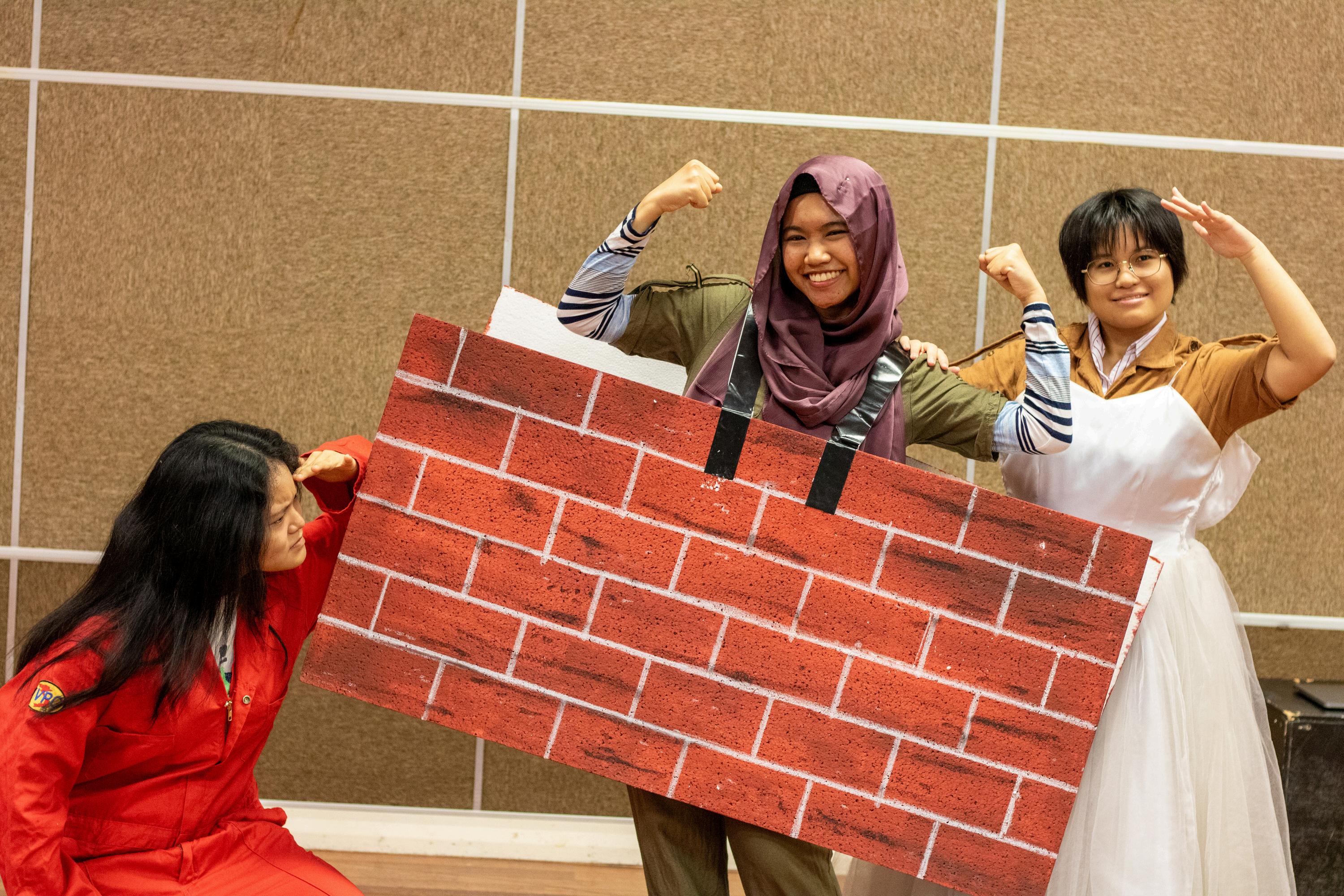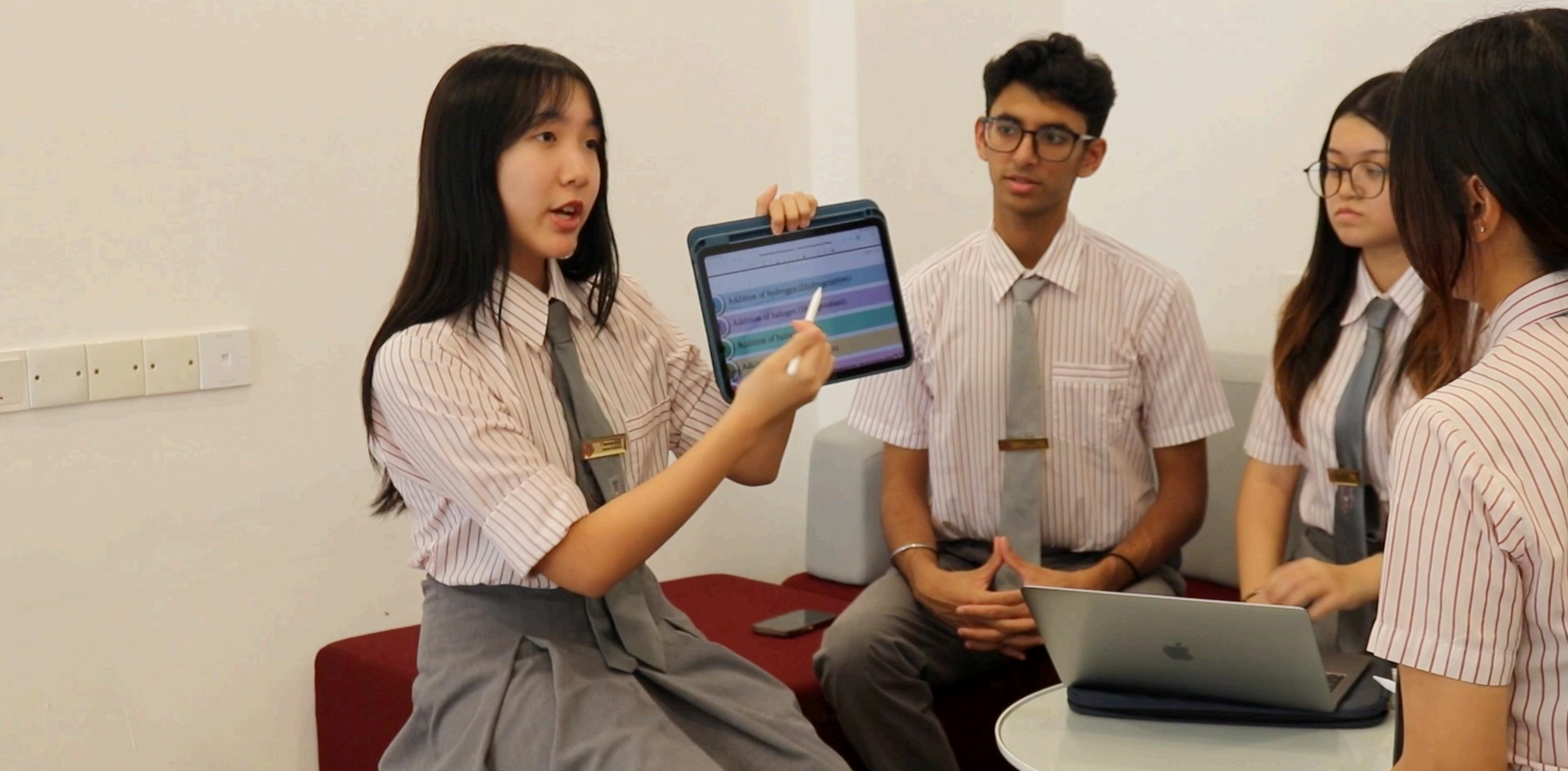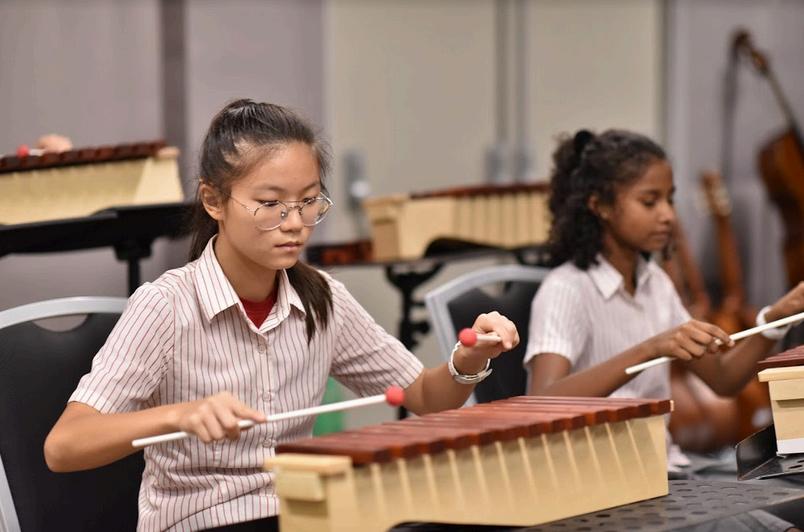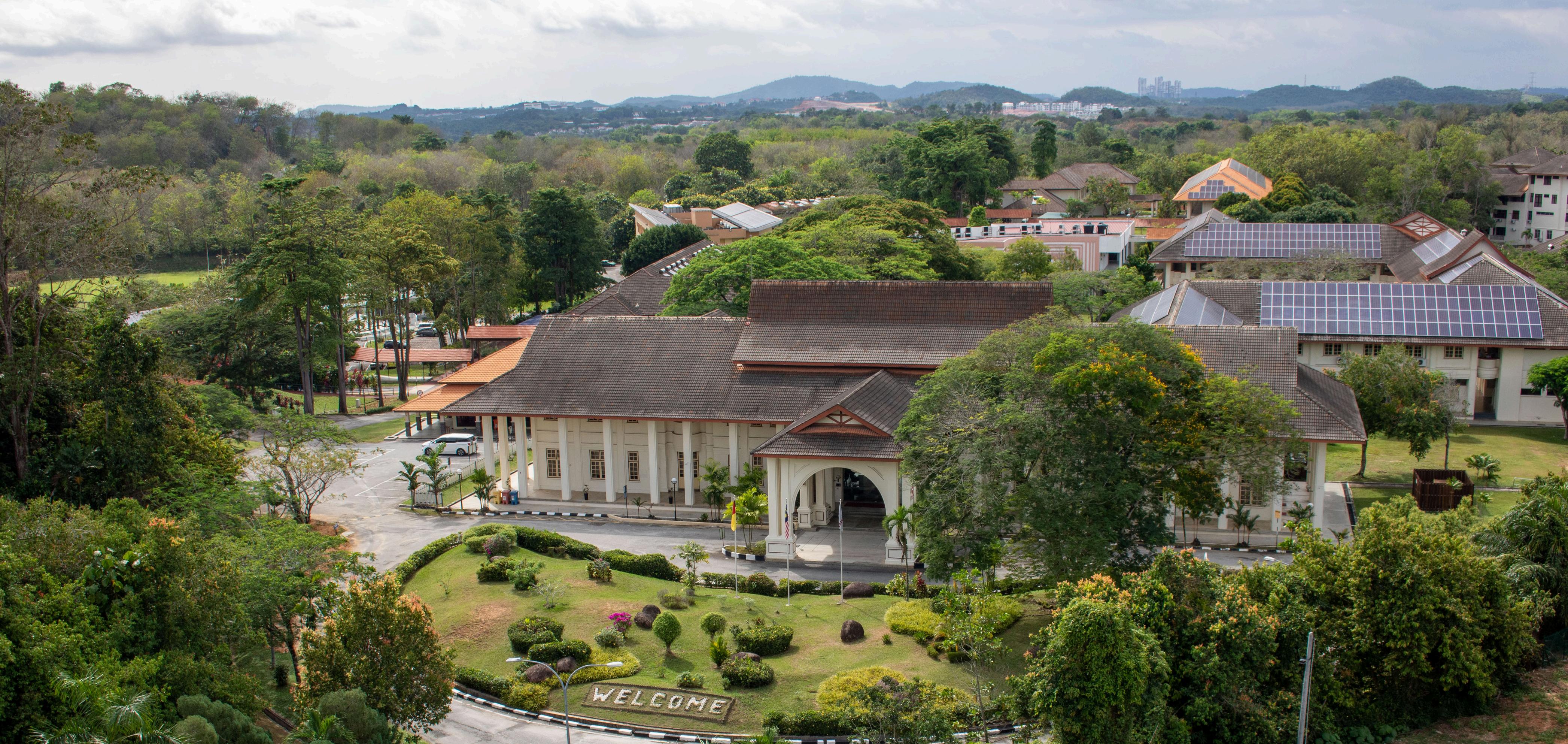

IGCSE Subject Choices Handbook | 2025-27

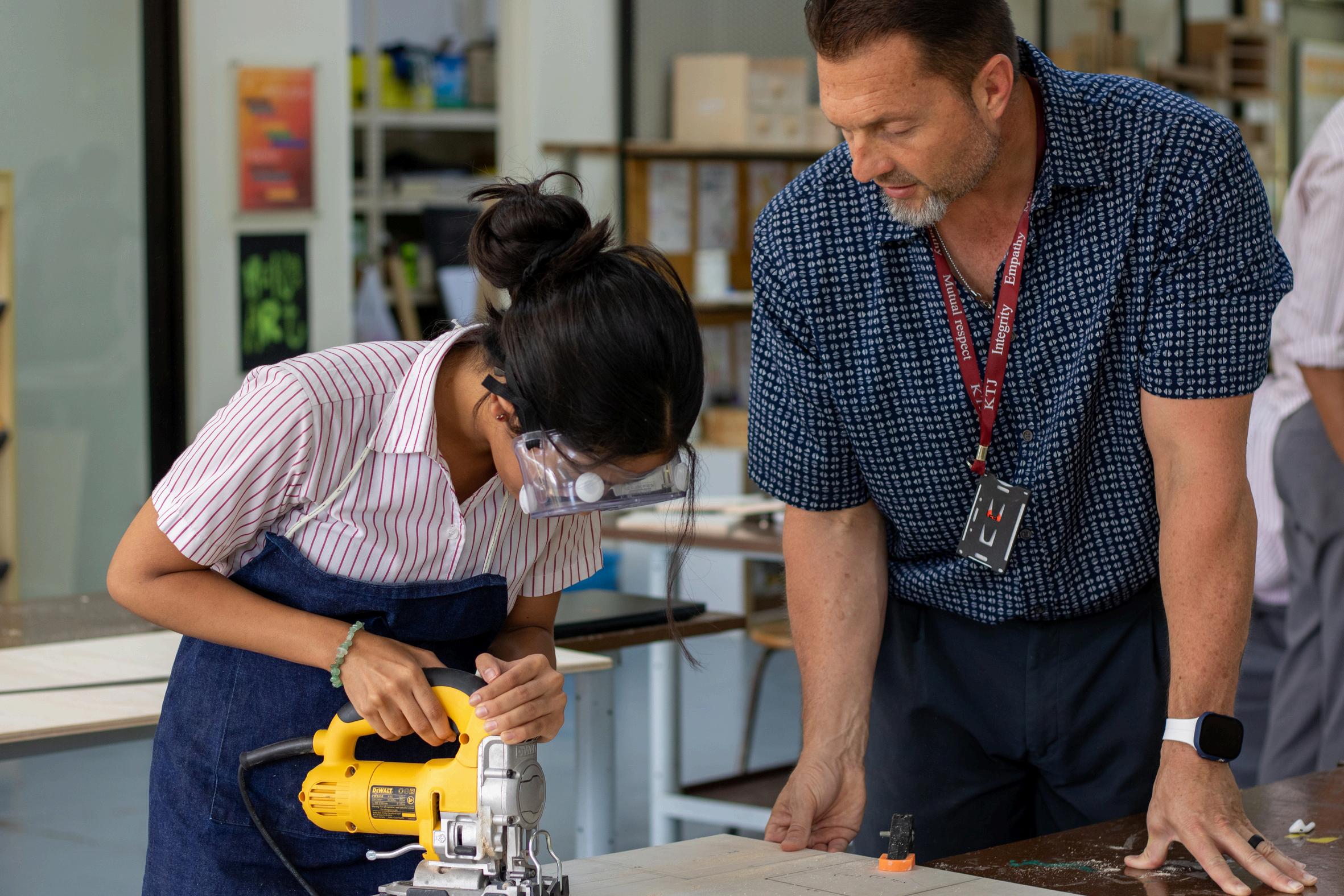

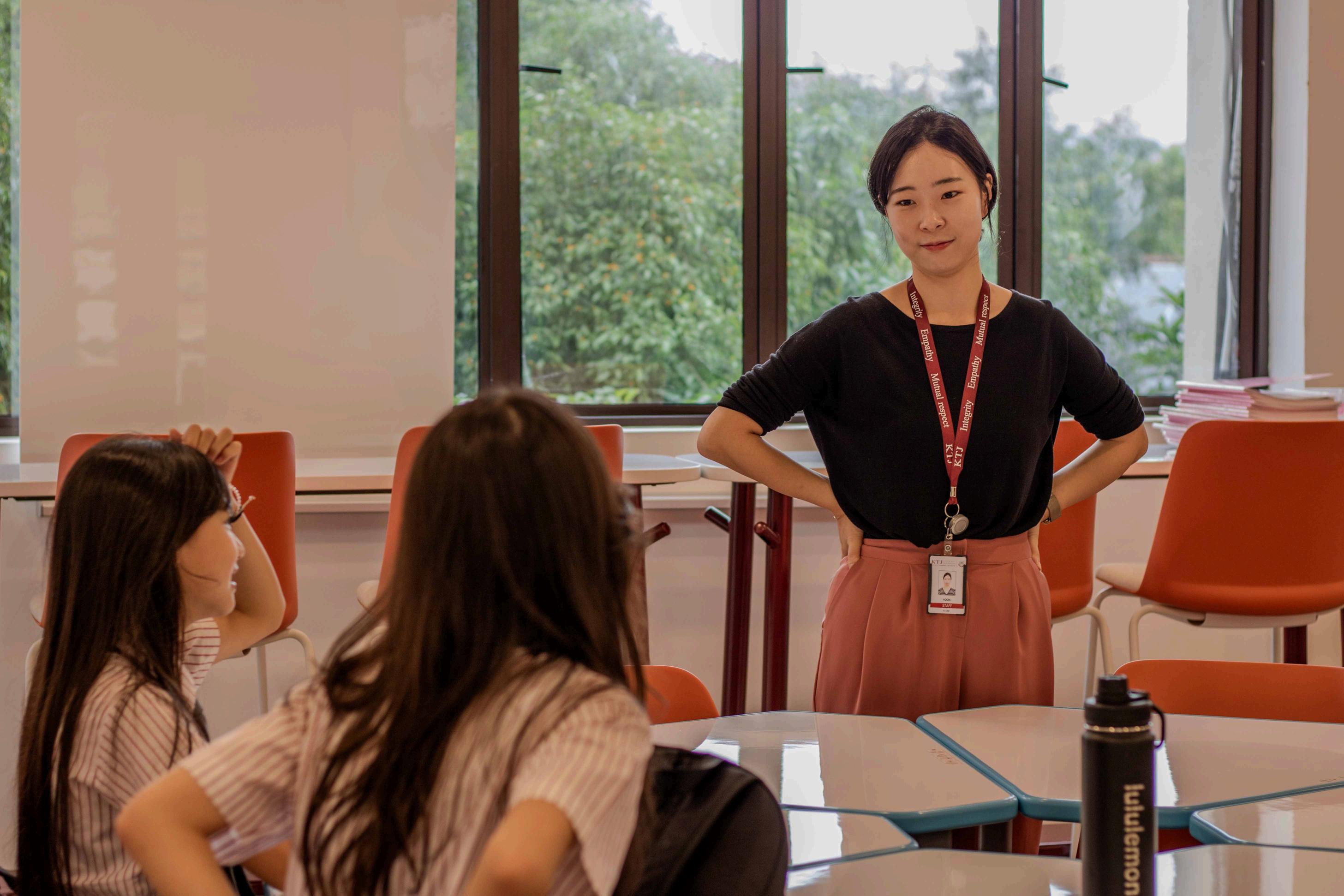
Introduction
The IGCSE years mark a significant academic milestone, combining increased subject specialisation with rigorous skill development. Students in Years 10 and 11 follow a vertically and horizontally coherent curriculum, building on prior learning while developing mastery in key academic areas. Strong emphasis is placed on literacy, numeracy, scientific reasoning, and analytical thinking skills that are not only essential for examination success, but also for navigating a complex global landscape. As global citizens, students are encouraged to think critically about international issues, cultural diversity, and ethical leadership. Throughout the IGCSE journey, learners take greater ownership of their progress, supported by expert teaching and pastoral guidance. This booklet provides parents with a detailed overview of subject content, assessment styles, and the broader educational goals that underpin our curriculum—ensuring each student is equipped to achieve academic excellence and make meaningful contributions to the world.
Curriculum connections and interdisciplinary learning
At KTJ, we believe that deep understanding is nurtured when students can make meaningful connections across subjects. Our curriculum is designed with a whole-school vision in mind, ensuring coherence and collaboration between departments. All staff are aware of the broader curriculum journey, and work together to reinforce key skills such as analysis, problem-solving, communication, and creativity—across disciplines.
Interdisciplinary learning is enriched through CCAs, educational trips, and carefully planned cross-curricular projects that highlight the real-world relevance of what students learn. Whether exploring environmental themes across Science and Geography, blending History and Literature through shared contexts, or applying mathematical models in Business or Design, students see that knowledge is not confined to subject boundaries. These opportunities help learners view their education as a connected whole, developing flexible thinkers prepared for a complex, global world.

Adaptive teaching
At KTJ, we are deeply committed to delivering an inclusive, high-quality education that meets the needs of every learner. Adaptive teaching sits at the heart of this mission. It ensures that all students—regardless of starting point—can access the full breadth and ambition of our curriculum. Drawing on the latest research, including Tom Sherrington’s Walkthrus and guidance from the Education Endowment Foundation (EEF), adaptive teaching helps our teachers to respond intelligently and consistently to student needs.
Proactive adaptation: Before the lesson
Effective adaptive teaching begins before the lesson. Teachers analyse data, provision maps, prior knowledge, vocabulary gaps, cultural experiences, and potential misconceptions. This informs lesson planning that includes:
Use of scaffolding, such as sentence stems or models.
Accessibility adjustments (font size, visuals, clarity of task).
Tailored teaching strategies for EAL, SEND, or low-attaining students.
Liaison with the SENDCO and planned TA deployment.
Designing in opportunities for pre-teaching or retrieval.
Proactive planning ensures barriers are anticipated, not just reacted to, promoting equity through thoughtful preparation.
Responsive adaptation: During the lesson
Adaptive teaching continues in the moment, using formative assessment to check for understanding and respond in real time. Teachers use strategies such as:
Cold calling, hinge questions, and mini whiteboards.
Live modelling and use of analogies or visual prompts.
Adjusting language, re-explaining tasks, or clarifying success criteria.
Modifying challenge level and using live feedback.
Flexible grouping and backward fading to reduce support over time.
This responsive approach helps close gaps as they arise and ensures that misconceptions do not persist unaddressed.
Conclusion
Adaptive teaching is not about creating separate tasks for every student, but about delivering a high-quality, ambitious curriculum in ways that all learners can access. Through proactive planning and responsive in-lesson actions, teachers at KTJ ensure progress, promote independence, and reduce the need for intervention later.

Assessment
At KTJ, assessment is not simply about tracking outcomes—it is a powerful tool for guiding learning. Our approach prioritises checking for understanding through continuous, low-stakes assessment that allows students to reflect, improve, and develop core knowledge and skills. We create a culture of risk-free learning, where students are encouraged to make mistakes and learn from them, fostering resilience and deep understanding. After all, it is often through mistakes that the most meaningful progress is made.
Live Feedback and Ongoing Assessment
Teachers use live feedback as a central strategy to adapt teaching in real time. This may take the form of hinge questions, cold calling, mini-whiteboard responses, or verbal check-ins—all of which provide immediate insight into student understanding. This allows for agile re-teaching, clarification, or deepening of content in the moment.
Assessment opportunities are often cunningly blended with practice tasks that mirror exam conditions, reinforcing subject-specific skills without compromising student confidence. By doing this regularly, we prepare students not only for summative assessments but also for lifelong learning and reflection.
Subject-Specific Adaptation
Assessment methods are thoughtfully adapted to suit the nature of each subject. For example:
In Maths and Science, precise written responses and problem-solving are checked frequently for accuracy and process.
In English and Humanities, analytical thinking and argument construction are modelled and practised, with feedback targeting structure, clarity, and depth.
In creative subjects, assessment includes peer critique, performances, or portfolios, encouraging reflective improvement.
Informing Future Planning
Regular checks for understanding do more than guide individual lessons they shape future curriculum planning and assessment design. Teachers analyse patterns in performance to identify gaps, misconceptions, or opportunities for stretch and support. This cyclical process ensures our teaching remains responsive, inclusive, and aspirational.
Linking Pastoral Care to Academic Excellence at KTJ
At KTJ, we believe that wellbeing and academic success go hand in hand. A student who feels safe, supported, and valued is far more likely to thrive intellectually and personally. Our pastoral care system is deeply integrated with our academic structures, ensuring that every learner is seen, known, and nurtured.
There is exceptional communication between House Parents, Form Tutors, and academic staff, allowing us to take a holistic view of each student’s progress. Our dedicated counsellors and pastoral support workers collaborate closely with teachers to identify barriers to learning whether emotional, social, or behavioural—and to develop targeted support plans.
We foster a culture of care and accountability through restorative practice, helping students reflect on challenges and rebuild positive relationships. Co-coaching between pastoral and academic staff strengthens our shared understanding of student needs and promotes consistent, compassionate responses. This integrated approach ensures that every child has the foundation to reach their full potential.
Teaching and learning
At KTJ, we are proud of our vibrant and collaborative teaching culture, where every teacher is both a learner and a leader in the pursuit of excellence. We believe that outstanding teaching and learning are driven by reflection, shared practice, and a commitment to staying abreast of educational research. Our approach ensures that students benefit from consistently high-quality, evidence-informed instruction in every classroom.
A central feature of our professional learning culture is the KTJ Buddy System. Every teacher is paired with a colleague to provide mutual support, encouragement, and reflection. This peer-to-peer model promotes honest dialogue, practical idea-sharing, and continuous professional growth in a safe, respectful environment. It is an essential part of how we build trust and openness within our teaching community.

In addition, our weekly CPD (Continuing Professional Development) sessions offer structured opportunities for staff to engage with current research and emerging best practices. Sessions are aligned with school priorities and focus on all aspects of teaching and learning—from curriculum design and adaptive teaching to effective questioning and formative assessment. These sessions also create space for innovation and exploration, empowering staff to implement new strategies confidently in the classroom.
We are fortunate to have Tom Sherrington as a critical friend, whose guidance, rooted in the Walkthrus model, helps shape our pedagogical approach. His collaboration supports our continued drive for excellence and ensures that our strategies remain deeply anchored in current, high-impact research.
This work is strengthened by the close, strategic partnership between curriculum leaders and leaders of teaching and learning, who operate in perfect symmetry. Together, they ensure that what we teach and how we teach it are perfectly aligned—supporting progression, coherence, and student engagement across the school.
We reinforce these developmental structures through a rigorous but supportive quality assurance system, including learning walks, cocoaching, and developmental observations. These are not about performance management but about identifying and celebrating effective practice while supporting areas for refinement. Staff are encouraged to trial approaches, reflect collaboratively, and take ownership of their professional growth.
Our commitment to exceptional teaching and learning is not static—it is dynamic, evolving, and rooted in a whole-school culture of reflective practice. Through this, we ensure that every student at KTJ benefits from a rich, challenging, and supportive educational experience.

Global Citizenship
At the heart of our curriculum is the development of global citizenship — a vital quality for every young international student in today’s interconnected world. Global citizenship is defined through seven key pillars: Ethics, Diversity, Global Issues, Communication, Global Service, Leadership, and Sustainable Lifestyle. These values empower students to think critically, act compassionately, and lead responsibly across cultures and communities.
Each subject area integrates these principles to foster awareness, empathy, and action. From understanding ethical dilemmas in literature to addressing climate change in science, students gain a holistic education that extends far beyond the classroom. Global citizenship is essential not only for individual growth but for building a more just, peaceful, and sustainable world. By nurturing these qualities early, we prepare our learners to become thoughtful leaders and active contributors to positive global change. Together, we are shaping citizens of the world — ready for tomorrow, rooted in values today.
Intercultural Learning
Intercultural learning is a vital part of our curriculum, distinct from—but closely linked to—global citizenship. While global citizenship focuses on global responsibility and leadership, intercultural learning emphasizes how we understand, respect, and engage with diverse cultures in our everyday lives. It is rooted in four key pillars: Cultural Inclusivity, Anti-bias/Open-mindedness, Conflict Resolution, and Cultural Celebrations.
These pillars guide students to value differences, challenge stereotypes, and build positive relationships across cultures. Through activities, discussions, and real-world applications, students learn to navigate cultural complexities with empathy and respect.
Intercultural learning is embedded and tracked across all subjects, with strong inter-disciplinary links encouraging students to make connections between history, language, the arts, and beyond. This fosters deeper understanding and allows for richer classroom experiences.
By nurturing intercultural competence, we prepare students to thrive in diverse environments—empowered not just to live in a global world, but to connect meaningfully within it.

Wellbeing and PSHE
Wellbeing and PSHE (Personal, Social, Health and Economic education) are at the core of our commitment to developing confident, healthy, and resilient learners. Through dedicated PSHE lessons and integration across all subject areas, we explore key themes including: Physical and Mental Health, Growing and Changing, Personal Safety, Relationships and Sex Education, Bullying and Discrimination, Media and Digital Literacy, Money and Careers, and Community and Responsibility.
These areas equip students with essential life skills, emotional intelligence, and the confidence to navigate an ever-changing world. While every subject contributes to a student’s personal development, our dedicated PSHE programme ensures focused, age-appropriate learning in a safe, supportive environment.
We believe that when pastoral care and academic learning work hand-in-hand, students thrive. Happy, self-aware learners with high selfesteem not only lead more fulfilling lives but also achieve stronger academic outcomes. Our aim is to nurture well-rounded individuals ready for all aspects of life.
Digital Citizenship
In an increasingly digital and AI-driven world, teaching young people to be responsible, ethical digital citizens is more important than ever. Our digital citizenship curriculum equips students with the knowledge and skills to navigate online spaces safely, respectfully, and thoughtfully. Key themes include Privacy & Security, Cyberbullying, Digital Drama & Hate Speech, Digital Footprint & Identity, Relationships & Communication, News & Media Literacy, and Media Balance & Well-being.
These areas are explored both in dedicated lessons and across subject areas, ensuring students understand how their digital lives connect with the real world. With the rapid development of technology, particularly AI, students must be prepared to engage critically and responsibly with digital tools, platforms, and information.
Digital citizenship goes beyond internet safety—it’s about shaping mindful, informed individuals who can lead with integrity in the digital age. As global citizens of the future, our students must be equipped to use technology to build, not divide, the world around them.

Accounting Curriculum Roadmap
Students will learn the fundamental concepts and practices essential for Accounting. They will explore the purpose of accounting and the accounting equation, the double entry system of bookkeeping, and will also become familiar with various business documents and the books of prime entry, which are crucial for maintaining organised and reliable financial data.
Students will learn to differentiate between capital and revenue expenditure and receipts, understand depreciation and disposal of non-current assets, manage payables and receivables, handle irrecoverable debts and provisions for doubtful debts, and explore inventory valuation. They will also cover the correction of errors and bank reconciliation, enabling students to match the company's financial records with bank statements to ensure consistency.
Students will explore various business structures and their financial implications. They will learn about sole traders, partnerships, and limited companies, understanding the unique accounting practices for each. The module also covers the financial management of clubs and societies, as well as the preparation of manufacturing accounts. Additionally, students will address the challenges of incomplete records and how to manage them effectively.
Students will learn to calculate and understand various accounting ratios, which are essential for evaluating a company's financial health. They will interpret these ratios to gain insights into business performance and conduct inter-firm comparisons to benchmark against industry standards. The module also covers the perspectives of interested parties, and the limitations of accounting statements.
Students will delve into the foundational concepts that guide financial reporting and decision-making. They will learn about accounting principles, which are the fundamental guidelines and rules that ensure consistency and accuracy in financial statements. They will also learn accounting policies, which are the specific methods and practices that organisations adopt to apply these principles in their financial reporting.

Assessment
Accounting
Students’ knowledge will be assessed through topical tests, common assessment and an end of year exam.
Knowledge and skills
Students will gain a comprehensive understanding of accounting principles and practices, equipping them with essential knowledge and skills for financial management and analysis. Throughout the course, they will learn to differentiate between various business structures, such as sole traders, partnerships, limited companies, and clubs and societies, and understand their unique accounting requirements.
They will master the fundamentals of bookkeeping, including the double entry system, trial balance, and correction of errors. Students will also become proficient in handling business documents, books of prime entry, and managing incomplete records. They will explore advanced topics like depreciation, disposal of non-current assets, and the valuation of inventory.
The course will teach students to calculate and interpret accounting ratios, conduct inter-firm comparisons, and understand the perspectives of interested parties. They will also learn about the limitations of accounting statements, ensuring a critical approach to financial reporting. Additionally, students will gain practical skills in bank reconciliation, control accounts, and managing payables and receivables. They will be introduced to accounting principles and policies, providing a solid foundation for consistent and accurate financial reporting.
This course will prepare students for various roles in Accounting and Finance, enabling them to contribute to the financial health and success of any organisation.

Art and Design Curriculum Roadmap
The Cambridge International Art and Design IGCSE fosters creativity through practical and theoretical study across various media. Students develop artistic skills, research artists, and build a personal portfolio. Assessment includes coursework (50% of final mark) and an externally set assignment (50% of final mark), focusing on creativity, technique, and conceptual understanding.
Assessment Objective 1 focuses on gathering, recording, researching, and investigating visual and contextual sources. Students are expected to explore ideas through observational drawing, photography, and other media while demonstrating an understanding of artists, cultures, and artistic influences. They must show the ability to analyse and document their creative process effectively, using a range of techniques to support their final work.
Assessment Objective 2 focuses on exploring and developing ideas through experimentation. Students are expected to refine their techniques by testing different media, materials, and processes. They should demonstrate creativity, problem-solving skills, and the ability to evaluate and improve their work. This objective emphasises the development of personal artistic responses through continuous experimentation and refinement.
Assessment Objective 3 focuses on reflecting, recording, and reviewing ideas. Students must document their creative journey through sketches, notes, and visual research, showing critical thinking and self-evaluation. They should demonstrate an understanding of composition, visual elements, and artistic influences while refining their concepts. This objective emphasises thoughtful reflection and the ability to communicate artistic intentions effectively.
Assessment Objective 4 focuses on presenting a personal and meaningful response. Students must produce a final artwork that reflects their ideas, research, and experimentation. The work should demonstrate creativity, technical skill, and an understanding of composition and visual impact. This objective emphasises the ability to develop a cohesive and wellexecuted artistic outcome that effectively communicates the student’s intentions.

Assessment
Art and Design
The Cambridge International IGCSE Art and Design assessment consists of two main components: coursework and an externally set assignment. Coursework includes a portfolio of work demonstrating research, experimentation, and development of ideas. The externally set assignment requires students to create a final piece in response to a given theme, supported by preparatory work. Both components are assessed based on four objectives: research and recording, exploration and development, reflection and review, and final presentation. The assessment focuses on creativity, technical skill, and the ability to communicate ideas effectively.
Knowledge and skills
By studying Cambridge International IGCSE Art and Design, pupils develop a range of creative, technical, and analytical skills. They gain proficiency in various artistic techniques, including drawing, painting, printmaking, textiles, photography, and digital media. The course enhances their ability to research and analyse artists, cultures, and artistic movements, fostering a deeper understanding of visual communication. Students also develop critical thinking, problem-solving, and self-reflection skills as they experiment with ideas and refine their work. Additionally, they learn to present a personal and meaningful artistic response, preparing them for further study and creative careers.

Biology
Curriculum Roadmap
To enable students to: acquire scientific knowledge and understanding; develop a range of experimental skills; use scientific data and evidence to solve problems; communicate effectively using scientific terminology; understand and apply scientific knowledge; and enjoy science and develop an informed interest.
Will include topics that cover: plant structure and function; photosynthesis; plant transport; plant reproduction; and plant responses and stimuli.
Will include topics that cover: animal cells and tissues; nutrition and digestion; circulatory system; respiration and gas exchange; nervous and endocrine systems; reproduction and development; homeostasis and excretion; and animal behaviour.
Will include topics that cover: fundamentals of genetics: chromosomes, genes and DNA, mitosis and meiosis; inheritance and genetic diagrams; variation and evolution; genetic modification and biotechnology.
Will include topics that cover: basic calculations and formulas - percentages, ratio and average; graph skills; magnification and size calculation; rate calculation; probability in genetics; and unit conversion.

Assessment
Topical tests
Common assessments
Practical assessments
Biology
End of year examination (Year 10) and trial examination (Year 11)
Knowledge and skills
In IGCSE Biology, students will develop a strong foundation in biological science through a balance of theoretical knowledge, practical skills, and real-world applications. The course covers core biological concepts such as cell biology, human physiology, plant biology, genetics and inheritance, ecology, and biotechnology.
Students will gain hands-on experience through microscopy, dissection, experimental design, and data analysis, helping them build essential practical and investigative skills. The course also emphasises transferable skills like critical thinking, scientific literacy, problem-solving, and the application of mathematical techniques to biological contexts.
To support academic success, students will learn effective exam strategies and revision techniques tailored to the IGCSE format. Additionally, they will explore biology's role in addressing global challenges, such as biodiversity loss, disease outbreaks, and sustainability, fostering a well-rounded and internationally relevant understanding of the subject.

Business Studies
Curriculum Roadmap
This section introduces the underlying ideas and concepts of business and includes the purpose and nature of business activity and how businesses can be classified. Enterprise and entrepreneurs, and why some businesses grow while others remain small are further important issues. How business size can be measured, types of business organisation, business objectives and stakeholder objectives are the concluding topics.
The focus is the functional area of human resources and includes the importance and methods of motivating a workforce. How businesses are organised and managed and the methods of recruitment, selection and training of employees are also considered. Finally, the section covers the importance and methods of effective internal and external communication.
This section includes the role of marketing, the distinctions between niche and mass markets and the techniques of market segmentation. The methods and importance of market research are covered. The central role of the marketing mix, i.e. the four Ps, is made clear. Marketing strategies to influence consumer decisions at home and in new foreign markets are the final topics in this section.
The focus is the functional area of production and includes the meaning and methods of production and how productivity can be increased. The different costs of production and break-even analysis are covered. The section concludes with the importance and methods of achieving quality in the production process and location decisions of businesses.
Students will examine external influences on business activity, environmental, and ethical issues, and their effects on business functions. They will learn about the international economy, globalisation, multinational businesses, exchange rates, and legal constraints. Accounting and finance will cover business finance needs and sources, cash-flow forecasting, working capital, income statements, financial position statements, and the use and analysis of accounts.

Assessment
Topical assessments
Section assessments
Business Studies
Summative assessments on Paper 1 (short answer and data response) and Paper 2 (case studies)
Knowledge and skills
Active reading: Use resources like online articles, business news, and case studies to see concepts in realworld contexts.
Defining key terms: Understand the nuances of each term and how they relate to each other.
Visual aids: This aids in understanding relationships between different topics.
Application and analysis: Practice analyzing case studies by identifying problems, evaluating solutions, and making recommendations.
Data interpretation: Develop the ability to interpret data presented in tables, charts, and graphs.
Calculations: Be comfortable with basic business calculations, such as profit margins, revenue, and break-even points.
Evaluation and judgement: Practice evaluating different perspectives and forming your own opinions.

Chemistry
Curriculum Roadmap
Fundamentals of Chemistry
Analytical and Periodic Chemistry Chemical Reactions and Quantitative Chemistry
Organic Chemistry
Practical Skills
Students will explore the basic building blocks of matters, including atoms, elements and compounds.
They will understand how atomic structure relates to the periodic table and how different type of chemical bonds (ionic, covalent, metallic) influence the properties of substances.
This section delves into various chemical reactions, including acid-base reactions and redox processes. Students will learn to perform calculations involving reactants and products, understand factors affecting rates, and explore energy changes during chemical reactions.
Students will gain skills in identifying substances through chemical and instrumental analysis techniques. They will also study the periodic trends and learn how these trends influence the chemical behavior of elements.
This chapter introduces students to the chemistry of carbon-containing compounds. They will explore different classes of organic compounds, their reactions, and their significance in everyday life.
Students will develop hands-on laboratory skills, learn to design experiment, analyse data, and draw conclusions based on empirical evidence. These skills are crucial for scientific literacy and further studies in science.

Assessment
Chemistry
Students are assessed through Common Assessments covering multiple topics, along with End of Year Exam (For Year 10) and Trial exams (For Year 11) to ensure understanding before the actual IGCSE exams.
Knowledge and skills
Studying Chemistry equips students with a wide range of essential knowledge and skills:
Experimental Design & Practical Skills: Students learn to plan, conduct, and evaluate experiments safely and efficiently, developing strong practical skills while adhering to safety protocols.
Data Handling & Analysis: They acquire the ability to collect, interpret, and analyze data, drawing valid conclusions and recognizing the limitations of scientific models and theories.
Scientific Inquiry: Students apply the scientific method, fostering a deep understanding of scientific principles while encouraging curiosity, objectivity, and integrity in their work.
Problem-Solving & Critical Thinking: The course develops critical thinking skills to address complex problems and make sound, reasoned decisions in experimental contexts.
Communication Skills: Students gain proficiency in scientific communication, using appropriate terminology and conventions to present their findings clearly and effectively.
Mathematical Skills: They also strengthen mathematical skills, particularly in relation to data analysis, measurements, and calculations in chemistry.
Environmental and Social Responsibility: Chemistry students develop an awareness of their responsibility to society and the environment, promoting sustainable scientific practices.

Chinese: First Language
Curriculum Roadmap
This topic focuses on developing students' ability to articulate experiences and express thoughts, feelings, and imagination through storytelling. Students will learn to structure their narratives effectively, using a wide range of vocabulary and correct grammar to engage the reader and convey their message clearly.
In this topic, students will learn to present and support their opinions on various subjects. They will practise constructing logical arguments, using evidence to back up their points, and addressing counterarguments. This helps develop critical thinking and persuasive writing skills.
This topic aims to enhance students' ability to describe scenes, objects, and experiences vividly. They will learn to use sensory details and figurative language to create rich, immersive descriptions that capture the reader's imagination.
Students will explore classical Chinese texts, gaining an appreciation for the language, style, and cultural context of these works. This topic helps students understand the historical significance of classical prose and its influence on modern Chinese literature.
This topic focuses on practical writing tasks, such as letters, reports, and articles. Students will learn to write for specific purposes and audiences, using appropriate language and tone. This helps develop their ability to communicate effectively in various real-life situations.

Chinese: First Language
Assessment
Assessments are both formal and informal and are conducted throughout two years. Teachers provide live feedback in class and offer help both verbally and in writing, often on a one-to-one basis. Teachers also provide detailed written comments, usually based on the requirements of IGCSE from CAIE.
At the end of Year 10, there will be an end-of-year exam to assess the students' progress through the year. For IGCSE, students will be evaluated on two components: reading and writing, each carrying a 50% weight.
Knowledge and skills
The IGCSE First Language Chinese (0509) syllabus is designed to develop learners' ability to communicate clearly, accurately, and effectively in Chinese. Students will gain a solid foundation in the language, which includes a wideranging vocabulary, correct grammar, spelling, and punctuation. They will also develop a personal style and an awareness of the audience being addressed.
Throughout the course, students are encouraged to read widely, both for their own enjoyment and to develop an appreciation of how writers achieve their effects. The syllabus complements other areas of study by encouraging skills of more general application, such as analysis, synthesis, and evaluation.
By the end of the course, students will have honed their skills in reading, writing, speaking, and listening. They will be able to understand and respond to a variety of texts, express themselves effectively in both spoken and written Chinese, and demonstrate a deep understanding of the cultural context of the language.

Chinese: Foreign Language
Curriculum Roadmap
Personal and social life
Everyday activities The world around us
The world of work
The international world
This topic explores personal interactions and social contexts. Students learn to talk about themselves, their families and friends, home life, clothing, and leisure activities. This includes describing people, discussing hobbies, and talking about daily routines.
This section broadens the learner's perspective to include the environment, technology, and the built environment. Students cover topics like geography, weather, communication, and shopping. This includes talking about the weather, using technology, and describing places.
This area introduces students to the world of employment. They learn vocabulary and language related to jobs, workplaces, and professional interactions.
This topic expands the learner's cultural awareness by exploring different countries, nationalities, languages, and cultural practices. Students learn to discuss cultural customs, famous landmarks, and international relations.

Chinese: Foreign Language
Assessment
Assessments are both formal and informal and are conducted throughout two years. Teachers provide live feedback in class and offer help both verbally and in writing, often on a one-to-one basis. Teachers also provide detailed written comments, usually based on the requirements of IGCSE from CAIE.
At the end of Year 10, there will be an end-of-year exam to assess the students' progress through the year. For IGCSE, students will be evaluated on 3 components: speaking, listening, reading and writing, each carrying a 25% weight.
Knowledge and skills
This course provides students with a comprehensive foundation in the Mandarin Chinese language, focusing on practical communication skills across listening, reading, speaking, and writing. Organized around five key topic areas: everyday activities, personal and social life, the world around us, the world of work, and the international world. This course enables students to engage with the language in real-world contexts. Besides, this program emphasizes cultural awareness, fostering an understanding of Chinese customs and society, thereby promoting a global perspective.
Through this program, students gain proficiency in Mandarin Chinese, enabling them to communicate effectively in diverse situations. They develop strong language learning strategies, critical thinking skills, and enhanced interpersonal abilities, preparing them for academic, professional, and personal success. Furthermore, the cultural insights gained through the syllabus equip students with a deeper appreciation for the world's diverse cultures, promoting cross-cultural understanding and communication.

Chinese: Second Language
Curriculum Roadmap
Content Overview Paper 1: Reading and Writing Topics Areas
Cambridge IGCSE Chinese as a Second Language offers learners the opportunity to develop practical communication skills in listening, speaking, reading and writing. The syllabus will enable learners to become independent users of Chinese and to use Chinese to communicate effectively in a variety of practical contexts.
Young people, education, and peer relationships. Society, family, health and fitness, leisure activities, communication and technology. The world, geographical surroundings, environment, travel, pollution, recycling, global warming. Cultural diversity, festivals, customs and tradition, culinary diversity.
The reading passages and questions are printed in both traditional and simplified characters on the question paper. Candidates may write their answers in either traditional or simplified characters. This paper consist of three reading comprehensions and two written essays.
The audio material will be provided in Mandarin Chinese only. The question papers are printed in both traditional and simplified characters. The audio material will be played in the examination room. Candidates hear the spoken material for each exercise twice and appropriate pauses are included on the recording to allow candidates time to read the questions and write their answers.
There are three parts of the Speaking Exam:
1. A presentation by the candidate on a chosen topic. The topic should reflect an aspect of life in a Chinese-speaking community or Chinesespeaking culture.
2. A discussion with the examiner about the presentation.
3. A conversation with the examiner about general topics.

Chinese: Second Language
Assessment:
The Cambridge International IGCSE Chinese as a Second Language assessment consists of three main components:
Paper 1 - Reading and Writing (60%), duration: 2 hours
Paper 2 - Listening (20%), duration: 35 - 45 minutes.
Component 3 - Speaking (20%), duration:13 - 14 mins.
Knowledge and skills:
This course is aimed at enhancing students' Chinese Language proficiency, focusing on the key areas of reading, writing, listening, and speaking. Throughout the curriculum, students will engage with a variety of texts, develop their essay-writing skills, and practice effective communication. The combination of knowledge and skills in Cambridge IGCSE Chinese as a Second Language gives learners a solid foundation for further study. Candidates who achieve grades A* to C are well prepared to follow a wide range of courses including Cambridge International AS & A Level Chinese.

Computer Science
Curriculum Roadmap
Programming
Algorithms Data Representation and Computer Systems
These topics cover how algorithms can be represented using tools such as pseudocode and flowcharts, how their efficiency can be considered when solving problems. Students learn the principles behind common searching algorithms (such as linear and binary search) and sorting algorithms (such as bubble sort, insertion sort, and merge sort), enabling them to understand, compare, and apply them in practical problem-solving.
These topics cover key programming concepts, including data types, operations, data structures, input/output and file handling, string and random number processing, subroutines, and structured approaches to programming. Students also explore robust and secure coding practices as well as the classification of programming languages and translators.
These topics cover how data and instructions are represented and processed in a computer, including number bases, binary arithmetic, character encoding, images, sound, and data compression. Students also study hardware, software, Boolean logic, software classification, and systems architecture. This provides a foundation for understanding how computers store, manipulate, and manage information.
Computer Networks and Cyber Security
Relational databases and SQL and Web Page design
These topics focus on how computer networks operate and the importance of protecting them from cyber security threats. Students learn about different types of threats, including social engineering and malicious code, as well as methods used to detect, prevent, and reduce risks. The emphasis is on understanding both technical and human factors in keeping systems secure.
These topics cover Relational Databases, Database Design, Structured Query Language (SQL), Key Concepts, and Hypertext Markup Language (HTML). Students will learn how databases store and organise data, how database design ensures accuracy and avoids redundancy, and how SQL is used to create and manage data. Key concepts provide the foundation for understanding web technologies with HTML teaches how to structure and present content on web pages.
Computer Science
Assessment
Students will be assessed through end-of-chapter tests, common assessments, question-and-answer sessions with feedback, as well as the end-of-year exam and trial exams leading up to the final exam.
Paper 1: On-screen programming exam based on a pre-released skeleton program.
Paper 2 – Concepts and principles of Computer Science.
Candidates will be required to write an algorithm using pseudocode or program code for the context provided.
Knowledge and skills
Problem-solving abilities: Involve identifying issues, developing a systematic approach to brainstorm and apply solutions, and evaluating their effectiveness through practical activities.
Critical thinking and analytical skills: To effectively break down issues, systematically analyse data and provide logical solutions.
Communication skills: To effectively communicate thoughts and solution through clear explanations and productive discussions.

Design and Technology
Curriculum Roadmap
The IGCSE Resistant Materials course focuses on material properties, safe working practices, and tool usage. Students learn to shape materials through techniques like cutting, bending, and finishing, and explore joining methods such as adhesive bonding and welding. The course also emphasizes planning, designing, and presenting projects, ensuring they are functional and durable.
The design process involves identifying a problem, researching, and generating ideas. A design brief outlines objectives, target users, and constraints. The best idea is developed into a prototype for testing and refinement. After evaluation, the final product is produced and improved through iteration.
Manufacturing processes transform raw materials into finished products using methods like casting, machining, molding, welding, and 3D printing. The choice of process depends on material properties, cost, and efficiency. Practical experimentation, such as testing materials and using CNC machines, helps optimize production and improve product quality.
Planning and designing involve researching the brief, brainstorming ideas, and refining concepts into workable solutions. Tools like SketchUp help visualize designs, while careful planning and structured timelines keep the project on track. Effective organization ensures a smooth transition from concept to production.
Making and evaluating involve manufacturing, problem-solving, and tracking progress. During production, challenges are addressed through troubleshooting and adjustments. Documenting each step helps identify improvements and maintain quality. Testing ensures the product meets design specifications and functions correctly. A final evaluation assesses overall performance, usability, and potential refinements.

Design and Technology
Assessment
Practical projects: Students will design and manufacture a product using materials like wood, metal, or plastic, demonstrating their making skills and accuracy.
Design portfolio: This includes research, idea generation, sketches, CAD models, planning, and evaluations.
Theory tests: Assessing knowledge of materials, tools, manufacturing processes, and safety procedures.
Problem-solving tasks: Students will be evaluated on how they adapt and improve designs based on challenges.
Evaluation and reflection: Students will assess their final product, identifying strengths, weaknesses, and improvements.
Knowledge and skills
Knowledge:
Understanding different materials (wood, metal, plastic) and their properties.
Learning about manufacturing processes such as cutting, shaping, joining, and finishing.
Awareness of health and safety procedures in a workshop environment.
Introduction to sustainability and environmental impact in material selection and production.
Understanding how to use CAD (Computer-Aided Design) software like SketchUp for designing.
Skills:
Practical making skills using hand tools, machines, and power tools.
Problem-solving and creativity in designing and improving products.
Measuring and accuracy in marking, cutting, and assembling materials.
Planning and time management to follow a structured design and manufacturing process.
Testing and evaluation to assess product functionality and suggest improvements.

Dance Curriculum
Roadmap
Dance styles
In the opening of the course students will explore both practically and theoretically a number of different dance styles and practitioner's within the industry. Students will develop their appreciation of dance and technical skills.
Students will continue to develop their knowledge and practical ability within dance. They will be encouraged to explore their own styles of dance and to branch into other creative opportunities.
Dance choreography
Students will begin exploratory work of historical and contemporary dance practitioners. They will be encouraged to develop their skills as choreographers through participation in class routines and extracurricular pursuits.
Students will begin work towards their practical coursework units, to include creation of practical pieces of dance containing original choreography and group and solo performance work.
Students will develop a critical appreciation of their own work and the work of others. They will develop the language of dance ready for the written paper at the end of the course.

Assessment
Dance
Skills in dance will be assessed through practical workshops and exploration, analysis and performance. 60% of the Dance IGCSE is coursework based, 40% will be assessed via a written paper at the end of the course.
Knowledge and skills
Studying IGCSE Dance will develop skills in communication, creativity and leadership. Students will become ambassadors for dance both within their lessons and in the wider community of the school, taking part in performance event opportunities in a number of different settings. They will explore a variety of dance styles, developing both their appreciation and practical ability within the subject. Throughout the course students will be encouraged to develop their own creative style through choreography and working as an ensemble. The teacher will also develop each students’ technical abilities in dance.

Drama Curriculum Roadmap
Group scripted performance
Students explore a range of theatre styles, from naturalism to abstract forms, and develop key performance and characterisation techniques. Through practical workshops and reflection, they identify individual strengths, build ensemble skills, and begin written analysis. This foundation informs choices for coursework performance texts and creative approaches.
Students rehearse and perform an extract from a published play, developing their ability to interpret character, respond to direction, and work collaboratively. Emphasis is placed on voice, movement, proxemics, and interaction to communicate meaning and emotion. This is an examined component worth 20% of the students final IGCSE grade, and will usually be performed in term 3.
Students collaboratively devise and perform an original piece based on a stimulus. They develop structure, character, and dramatic intention through practical experimentation. This piece forms part of their coursework and also the written examination, where students evaluate their creative process, artistic choices, and the impact on an audience. It is usually performed in term 1 of Year 11.
Individual performance
Students select, rehearse, and perform a monologue or solo extract from a published play. This unit focuses on building independence, vocal and physical control, and the ability to sustain character alone on stage. It forms part of the coursework and encourages personal responsibility for artistic interpretation and audience engagement. It is worth 20% of the final IGCSE grade.
In Term 1 of Year 11, students explore the prerelease play extracts through practical work as actors, directors, and designers. They experiment with staging, characterisation, and design to develop artistic interpretations. This prepares them to write analytically about performance choices and rehearsal strategies in Section A and B of the written exam.

Assessment
Drama
In class, assessment is on an ongoing basis, based on observation of work in class, both in the planning and performance stages, and on participation in discussion, and description and analysis of work in writing. The IGCSE is assessed based on the three coursework performances, worth 20% each, and a written exam (40%) which asks students to analyse two play extracts and their devised coursework performance.
Knowledge and skills
The IGCSE Drama course supports students in developing confidence, creativity, and insight as performers, theatremakers, and reflective learners. In our strengths-based approach, students explore a wide range of theatrical styles, rehearsal methods, and performance techniques to discover and refine their individual artistic voice. They are encouraged to build on their strengths while developing new skills in ensemble work, solo performance, script interpretation, and devising.
Students learn to analyse how meaning is created through voice, movement, proxemics, pacing, and interaction, and how actors, directors, and designers shape dramatic intention. They engage practically with text and stimulus material, developing original responses and creative solutions to performance challenges. Technical and design elements—lighting, sound, costume, and space—are considered as integral tools for communication. Across the course, students produce both scripted and devised work for assessment and are supported in reflecting critically on their process and performance. They develop the ability to justify artistic choices and evaluate dramatic impact from multiple perspectives.
Preparation for the written examination builds students' confidence in analysing live performance and applying vocabulary, theory, and practical understanding to unseen material. By the end of the course, students will have a well-rounded foundation in drama and the ability to work creatively and collaboratively with clarity of intention.

Economics
Curriculum Roadmap
This section explores economic problems from unlimited wants and limited resources, covering factors of production, opportunity cost, and the Production Possibility Curve (PPC) in resource allocation.
The allocation of resources Government and the macroeconomy
This section focuses on how markets allocate resources and how prices adjust to demand and supply, including elasticity. They explore different economic systems and how resources are distributed. This helps them understand real-world economic decision-making and market dynamics.
This section covers the role of money and banks, household financial decisions, employment factors, and trade unions' influence. It also examines firms' production, cost and revenue, business objectives, and market structures shaping competition.
This section analyses the government's role in economic management, focusing on policies that influence growth, stability, employment, inflation, and purchasing power.
This section explores living standards, poverty, and income distribution, focusing on economic inequality, development, and global disparities. It also examines population growth, sustainable development, specialization and trade, the balance of payments, and exchange rates, analyzing their impact on global transactions. The effects of globalization are assessed alongside a comparison of free trade and protectionism, evaluating the benefits and drawbacks of open markets and trade barriers.

Assessment
Economics
Topic-based tests identify weak areas through multiple-choice and structured questions. Past paper practice improves time management and answer structuring. Mock exams build confidence and exam familiarity. Final revision provides feedback, refines concepts, and strengthens strategies.
Knowledge and skills
Students develop economic knowledge and critical thinking by analysing resource allocation, market dynamics, government policies, and global trade. They enhance problem-solving skills by evaluating economic indicators and comparing economies in real-world contexts.

English: First Language
Curriculum Roadmap
Students learn how to read and interpret a variety of English texts. They develop a broad vocabulary and learn how to summarise a text effectively. Most importantly they learn how to decern both the implicit and explicit meaning in a text.
Students learn how to identify and explain the effect of language devices such as metaphor, simile, personification. They also develop and understanding of the power behind well crafted syntax. Using point, example and explanation they develop sophisticated analytical skills.
Students pracitse the skills of writing useful everyday texts such as articles, letters, speeches and proposals. They develop the skill to determine the manner and tone that each texts should be written in t match the purpose and audience of the text.
Students develop their skill of structuring and crafting both descriptive and narrative texts that are designed to engage appropriate audiences. This develops their understanding of form, structure, language and tone.
Grammar and syntax are developed throughout the IGCSE two year course. Appropriate grammar and syntax forms the basis of all good written and spoken communication.

English: First Language
Assessment
This is a two year course and will assessed through a combination of in-class activities and formal examinations, and trial examinations focusing on reading comprehension, writing skills, and language analysis. The final externally marked examinations typically include structured questions on unseen texts and extended writing tasks, while classroom assessments may involve practice essays, comprehension exercises, and spoken language activities to develop critical thinking and communication skills.
Knowledge and skills
This course is designed to hone students' proficiency in English, preparing them for advanced academic endeavors. Students will engage in a wide range of activities that focus on critical reading, effective writing, and articulate speaking. The curriculum covers various topics, including persuasive and argumentative writing, in-depth analysis of diverse texts, and enhancing comprehension skills. Emphasis is placed on building the ability to construct coherent and convincing essays, analyze and interpret literary and non-literary texts, and communicate ideas with clarity and precision. These skills are essential for future academic success, enabling students to excel in higher education and beyond.

English: Second Language
Curriculum Roadmap
Students demonstrate understanding of specific factual information the connections between the ideas, opinions and attitudes. They also identify and select details for a specific purpose and demonstrate understanding of implied meaning.
Students communicate information, ideas and opinions, while organising ideas into coherent text using a range of linking words. They use a range of appropriate grammatical structures and vocabulary and develop appropriate register and style for the given purpose and audience.
Students communicate a range of ideas, facts and opinions and demonstrate control of a range of vocabulary and grammatical structures They develop responses and maintain communication and demonstrate control of pronunciation and intonation.
Students demonstrate understanding of specific information and show an understanding of speakers’ ideas, opinions and attitudes. They make connections between ideas, opinions and attitudes by identifying what is implied but not directly stated.
Students learn to communicate with the correct grammar needed in spoken and written English, while decerning between semi-formal and formal standard English.

English: Second Language
Assessment
This course is assessed throughout the period of two years through quizzes, comprehensions, debates and presentations in class. At the end of the second year the students have an external examination that comprises of a reading and writing papers, a listening assessment and a speaking assessment.
Knowledge and skills
This course is aimed at enhancing students' English language proficiency, focusing on the key areas of reading, writing, listening, and speaking. Throughout the curriculum, students will engage with a variety of texts, develop their essay-writing skills, and practice effective communication. Mastering these skills will not only improve their performance in all subjects but also prepare them for the demands of higher education. Holding a qualification in English as a Second Language opens doors to a broader range of academic opportunities and equips students with the language skills needed for future studies, whether in local or international institutions. This qualification demonstrates their ability to understand, analyse, and communicate complex ideas, making them well-prepared for the next stage of their educational journey.

English Literature
Curriculum Roadmap
Students develop independent reading habits and study one novel in depth. They learn to analyze the writer’s choice of form, language and structure, focusing on the use of theme, character and style.
Students study one play in depth and analyse the playwright’s intentions through the choice of form, structure and language. They examine the writer’s skill at developing dramatic characters and dramatic devices such as dialogue, action, dramatic irony and stage directions.
Students develop a wide appreciation of poetry by studying fifteen poems in detail. The study the effect of structural devices such as rhyme schemes and the importance of poetic meter. Through language and imagery the students develop a deep understanding of how language creates deep and lasting emotions in the reader.
Throughout the two year course, students develop a critical eye and are able to analyse the writer’s choice of form, structure and language in unseen texts. This is a skill that will be useful in their academic and working lives that lays the foundations of sophisticated interpretation of fictional texts.
Through the study literature the students learn about the life and times of the writer and the costumes and times of the period in which the text is set. This broadens the students world view and teaches and add nuanced layers to a greater understanding of the present day.

English Literature
Assessment
The students will be informally assessed over this two year course through presentations, debate and essays. They will also be formally assessed on their knowledge of the texts and the content through trial examination and three externally graded examination on poetry and prose, drama open book and unseen texts.
Knowledge and skills
English literature students develop critical thinking, analytical, and interpretative skills by studying novels, plays, poems, and historical contexts, allowing them to understand complex themes, diverse perspectives, and cultural influences. This academic subject is important because it enhances communication, empathy, and creativity, preparing students for various careers while deepening their appreciation of human experiences and societal developments.

Food and Nutrition
Curriculum Roadmap
Students build precision and independence in a wide range of foodcooking 40+ dishes, including breads, cakes, biscuits, main meals like risotto , fresh pasta and lasagne, desserts like souffle, cheesecake and panna cotta. They also learn preparation skills, knife techniques, cooking methods, plating, and time and organisation.
Student will gain knowledge of ingredients and the role they play in the food we eat including eggs, cereals, dairy, meats, fish, fruit/veg, and be able to select the appropriate ingredients for a range of dishes when cooking. They will learn how to balance, about diet across life stages, and special diets.
During the course students will study how to handle food correctly and the storage of foods at correct temperatures. Personal hygiene, contamination of food through bacteria, improper food storage and physical reasons, causes of food spoilage, preservation techniques e.g. freezing, drying, canning, and food packaging and labelling.
Students will study about macronutrients: proteins carbohydrates and fats. micronutrients: vitamins and minerals and fibre: Deficiency diseases, digestion and absorption of food, individual energy requirements based on lifestyle age and gender. and the science behind food reactions e.g. gelatinisation, enzymic browning caramelisation, denaturation, rancidity coagulation, Maillard.
Students prepare for the written and practical exams through past paper analysis, practical test simulations, and examstyle time planning. Through solo, pair, and group cooking tasks, they build a diverse recipe repertoire which is documented in their food blogs and reflected upon for skill development. They also develop their food photographic presentation,
Food and Nutrition
Assessment
Paper 1: 2 hours, Theory, 50%, 100 marks.
Paper 2: Practical Test, 50%, 100 marks
Comprises of 2 components: 2 hours 30 minutes to cook and present a range of dishes plus a 1 hour 30 minutes planning session where candidates plan the dishes to cook during the practical test based on their theme.
Knowledge and skills
AO1: Knowledge with Understanding – Students will use appropriate food-related terminology, demonstrate understanding of nutrition, food science, and meal planning, and explain how social and economic factors influence dietary choices.
AO2: Handling Information and Solving Problems – Students will interpret and apply information from nutritional data, recipes, and time plans; adapt meals to suit dietary needs; and organise resources efficiently during cooking tasks.
AO3: Experimental Skills and Investigations – Students will conduct food science investigations, test and compare cooking methods, and evaluate dishes based on texture, flavour, nutritional value, and presentation.

French Curriculum Roadmap
In this section, students will study lexical and linguistic structures needed to talk about food and drinks, to discuss health issues and be able to give advice for a healthy lifestyle. They will learn as well how to describe their various routines (at home and school) .
Students will review and deepen how to talk about and describe themselves, their family and their friends, and their house. They will learn as well how to describe relationship issues. They will explore special occasions and study how to describe family celebrations. They will study as well how to exchange information about their hobbies and holidays.
Students will study lexical and linguistic structures to to be able to talk about people and places, the natural world, the environment, the climate and the weather, communication and technologies, as well as buildings and services, urban areas and shops.
Students will review and deepen lexical and linguistic structures needed to talk about exam preparation and revision, to exchange information and opinion about work experiences, to discuss their choice of further education and career.
Students will explore facts linked to environment issues (climate change, natural disasters, pollution, endangered animals), charity and humanitarian work, problems in cities (homelessness, poverty, crime), THey will explore as well how to understand information about life in other countries and communities.

Assessment
French
Students oral and written work are evaluated for their vocabulary and grammatical knowledge. Their ability to identify specific information in longer written and aural (listening) passages is as well in detail. Marking schemes used are similar to those of IGCSE from CIE.
At the end of Year 10 there will be an end of year exam to assess the students progress through the year. For IGCSE, students will be evaluated on 4 components: reading, writing, listening and speaking; each carries a 25% weight.
Knowledge and skills
Students will be able to:
understand and exchange information about themselves, their family and their friends, their house (including housework); talk about their daily activities (at home and school); talk about healthy lifestyles and health issues; mention and describe family members and pets, discuss relationships; discuss hobbies and entertainment; accept and refuse invitations to go out and give excuses; discuss holiday plans; discuss about festivals and special occasions; seek information about eating out and respond to questions about their food requirements; talk about issues (hotel / restaurant booking), express their dissatisfaction, disappointment; describe the area they live in, make comparisons between city and countryside lifestyles; talk about environment issues; and discuss about school life, university and career plans.

Geography
Curriculum Roadmap
Population and settlements IGCSE
coursework The natural environment
Economic development
Building on prior learning in KS3, in this opening topic to IGCSE Geography students will look in detail at population dynamics and settlements. Through a number of case studies they will learn about the challenges of over and under population, population distribution and density, migration patterns and the challenges and opportunities urban environments face.
In this topic, students will really begin to delve into the physical processes that shape our planet. We will explore the causes and impacts of volcano and earthquake hazards, the characteristics and landforms associated with coastal and river environments as well as how weather and climate patterns influence global ecosystems.
In this phase of the IGCSE, pupils will develop their river knowledge to approach an independent river enquiry question. Stutdents will visit Janda Baik and collect a range of river data before returning to school and completing a detailed coursework report detailing their objectives, methodology, analysis of results, before then drawing conclusions and evaluating from the experience.
Following completion of the coursework, students will return to their Paper 1 studies, unpacking the broad range of topics associated with development. They will study economic indicators, globalisation, the dynamics of food production and industrial production, energy, water, tourism and the threats our environments face.
In the final phase of the IGCSE course, students will further develop their map skills with a focus on coordinates, scale, bearings and interpretation of contour lines. They will learn how to investigate maps to understand urban and rural environments as well as developing skills in analysis of photos and geographical written material.

Assessment
Geography
Paper 1: Geographical Themes (45%), duration: 1 hour 45 minutes
Paper 2: Geographical Skills (27.5%), duration: 1 hour 25 minutes
Paper 3: Coursework (27.5%)
Knowledge and skills
AO1: Knowledge with understanding
Demonstrate knowledge of places, environments, concepts, processes, and terminology at a range of scales, from local to global. Show understanding of the interrelationships between people and their environment, and the spatial and temporal characteristics of physical and human processes. Recalling case study material; Explaining processes or concepts clearly; Showing understanding of how processes interact or cause specific outcomes.
AO2: Skills and analysis
Interpret and analyse geographical data and evidence. Use appropriate techniques to show geographical information. Recognise patterns, relationships, and trends in data and draw inferences. Make decisions based on analysis and justify conclusions using geographical evidence. Using maps and data to support explanations. Analysing fieldwork results (or data in paper 4).
AO3: Judgement and decision-making
Assess geographical issues and make reasoned judgements.
Evaluate potential solutions to problems, considering sustainability and the interplay between human and physical geography.
Justify opinions and conclusions with reference to evidence and wider geographical understanding.

History
Curriculum Roadmap
Falling under Paper 1, students will learn about the attempts to restore peace and stability following the cataclysm of the First World War. The Paris Peace Treaties, the work of the League of Nations and Hitler’s Foreign Policy form the basis of investigation as students enquire why the world collapsed into disaster once more.
From the ashes of the Second World War, a new global conflict emerged. One defined by heightened tensions between the Superpowers - the USA and the USSR. Students will learn about the collapse in relations between the wartime allies, American attempts to contain communism in Korea, Cuba and Vietnam, and Soviet attempts to maintain control of their Empire in Eastern Europe and Central Asia. The Cold War also falls under Paper 1.
Students will study the social, cultural and economic history of the USA from the Roaring 20s to the Great Depression. The period saw the rise of consumerism and mass production, the Golden Age of Hollywood, prohibition and the rise of gangsterism, the Ku Klux Klan, a new era for women’s rights, and the first Red Scare. The 1930s covers the Wall Street Crash, the Depression and the New Deal.
Students have the chance to investigate an aspect of American history in depth. They will research and write a 2,000-word essay on topic of their own choosing, with guidance and support from their class teacher. The coursework forms 30% of thier final grade.

Assessment
Paper 1: 40% Extended writing.
History
Section A - Breadth Study. Students complete two questions from a choice of four. These questions are drawn from the International Relations and Cold War topics.
Section B - Depth Study. Students complete one question from a choice of two. These questions are drawn from the USA topics.
Paper 2: 30% Source analysis.
Students answer a set of six source analysis questions. The questions are based upon one of the six breadth study topics, (International Relations and the Cold War), which rotates each year.
Coursework: 30% Extended independent essay.
Students independently select and research a topic from within the USA Depth study, addressing the concept of historical significance. For example “How significant was the trial of Sacco and Vanzetti?” or “How significant was the Harlem Renaissance.” The 2,000-word essay is internally marked and externally moderated. Students are supported by their class teacher.
Knowledge and skills
Through the study of key historical events, learners enhance their ability to critically analyse cause and consequence, continuity and change, and similarities and differences. They develop source evaluation skills, learning to interpret, assess reliability, and use evidence to construct well-supported arguments. The course fosters independent thinking, enabling students to formulate and justify historical interpretations. Additionally, learners refine their communication skills, presenting structured, logical arguments in both written and verbal formats. Ultimately, the study of history nurtures curiosity, global awareness, and the ability to engage thoughtfully with complex issues.

Malay as a Foreign Language
Curriculum Roadmap
This section outlines key listening and reading skills, including understanding main points and key information in simple everyday materials, following clear speech on familiar topics, interpreting descriptions of events and expressions of ideas, opinions, and attitudes in simple texts, and identifying relevant information in predictable texts.
This section emphasises understanding main points and key information in simple everyday materials and authentic factual texts on familiar topics. Learners should be able to interpret descriptions of events, ideas, opinions, and attitudes, as well as identify and select relevant information in predictable texts.
This section focuses on developing clear and effective communication in everyday situations, engaging in conversations on familiar topics, and expressing opinions and feelings. Learners are expected to use a range of vocabulary and structures with reasonable accuracy, maintain interaction, and show some control over pronunciation and intonation.
Writing
This section focuses on developing writing skills, including clearly communicating simple factual information for everyday purposes, writing phrases and sentences on familiar topics, producing simple connected texts about events, experiences, opinions, and aspirations, and using a range of basic vocabulary and structures with reasonable accuracy.
This topic will cover local history, culture and festivals.

Malay as a Foreign Language
Assessment
Paper 1: Listening (25%), duration: 50 minutes. Candidates listen to a number of recordings and answer multiplechoice and matching questions.
Paper 2: Reading (25%), duration: 1 hour. Candidates read a number of texts and answer multiple-choice and matching questions
Paper 3: Speaking (25%), duration: 10 minutes. Candidates complete one role play and conversations on two topics.
Paper 4: Writing (25%). Candidates complete one form-filling task, one directed writing task and one task in the format of an email/letter or article/blog.
Knowledge and skills
This section aims to develop students' proficiency in Malay at CEFR level A2, with elements of B1, enabling effective communication and offering insights into Malay-speaking cultures. It fosters awareness of language and language learning, promotes positive attitudes toward other cultures, and provides enjoyment and intellectual stimulation. Additionally, it helps build transferable skills such as memorisation and inference, supporting broader learning and forming a solid foundation for further study or employment.

Additional Mathematics
Curriculum Roadmap
Algebra and functions
Trigonometry Calculus
Probability and statistics
Vectors and geometry
Quadratic functions
Simultaneous equations
Equations, inequalities and graphs
Functions
Factors of polynomials
Logarithmic and exponential functions
Series
Differentiation Integration Kinematics
Trigonometry Functions
Trigonometry Identities Trigonometry Equations
Permutations and Combinations
Straight-line graphs
Coordinate geometry of the circle
Circular measure
Vectors in two dimensions

Additional Mathematics (0606)
Assessment
Paper 1: Structured and unstructured questions (50%), duration: 2 hours. Non-calculator paper.
Paper 2: Structured and unstructured questions (50%), duration: 2 hours. A scientific calculator is required.
Knowledge and skills
The Cambridge IGCSE Additional Mathematics syllabus is designed for students who have a strong interest in mathematics and wish to extend their mathematical knowledge beyond the standard IGCSE Maths curriculum. It covers advanced topics that provide a solid foundation for further studies in mathematics, particularly for those planning to take higher education in mathematics and related fields such as engineering, economics, and physics.

Mathematics
Curriculum Roadmap
Basic number skills
Standard form
Limits of accuracy
Surds and indices
Ratio and proportion
Percentage skills
Standard form
Repeated percentage change
Basic algebra skills
Set notation
Plotting graphs
Solving basic quadratics x2 + bx + c = 0
Solving quadratics ax2 + bx + c = 0
Completing the square
The quadratic formula
Inequalities
Simultaneous equations
Sequences
Change of subject
Algebraic proof
Direct and inverse proportion
Summation of arithmetic series
Function notation and transformations
Differentiation
Shape, space and measure
Properties and areas of shapes
Trigonometry
Pythagoras’ theorem
Compound measures (speed, density)
Sine and Cosine rule
Sine area of a triangle
3D Pythagoras’ theorem
Angles in polygons and circles
Symmetry
Constructions
Volume
Similarity
Transformations
Circle theorems
Similar area and volume
Vectors
Basic probability
Tree diagrams
Conditional probability
Histograms
Statistical measures
Cumulative frequency diagrams

Assessment
Mathematics
Paper 1: Calculator (50%), duration: 2 hours.
Paper 2: Calculator (50%), duration: 2 hours
Knowledge and skills
The Pearson International GCSE qualifications have been designed in collaboration with subject experts, teachers and university professors, to ensure that the content and assessment methods are appropriate and will enable successful progression for learners, including those for whom English is not their first language. Assessments are entirely calculator-based, reflecting the skills needed in the modern world, and allowing students to focus on problem-solving rather than crunching the numbers. Opportunities to develop transferable skills such as problem solving, critical thinking, leadership and collaboration, are integrated throughout the qualification to ensure learners have the skills and knowledge they need to progress onto International A Level, the next level of study.

Music Curriculum Roadmap
This component is organised into seven areas of study through which students experience a rich mixture of music from different traditions, times and places. They will be taught to listen to the music with careful attention to detail, developing their recognition and understanding of musical features and concepts using appropriate musical terminology.
Students must sing or play a solo which may be accompanied or unaccompanied. The performance should last at least two minutes, but combined with ensemble performance, must not last more than ten minutes. In all areas, assessment is of the demonstration of skills, rather than the difficulty of the music itself. There is no benefit in performing repertoire which is too difficult.
Students must sing or play with other live performers, in a duet or small group. The performance should last at least two minutes, but combined with solo performance, must not last more than ten minutes. The piece chosen should allow the student to demonstrate rhythmic coordination and ensemble awareness. The student’s part must not be extensively doubled by any other performers.
Students are required to submit an original composition for assessment. Composition 1 must be notated using staff notation, in the form of a complete score. A recording must be submitted with the score. This coursework is internally assessed and externally moderated and contributes 15% to the IGCSE.
Students are required to submit an original composition for assessment. Composition 2 must be written to a candidate-defined brief which relates to one of four areas of study. A recording must be submitted with the score. This coursework is internally assessed and externally moderated and contributes 15% to the IGCSE.

Assessment
Music
IGCSE Music is assessed through a mix of coursework and examinations, focusing on listening, performing, and composing. Students complete four pieces of coursework, including two performances and two compositions, which together account for 60% of their final grade. The listening exam requires students to analyze and critique music from various genres and periods. Throughout the course, student progress is evaluated using a combination of observational, formative, and summative methods. Teachers provide structured guidance for coursework elements, ensuring students understand the requirements and expected outcomes. Regular opportunities are given for students to perform and workshop their compositions, receiving both verbal and written feedback to support their development. Students are encouraged to take instrumental lessons and participate in composition clinics for additional support. Additionally, they are frequently assessed on appraisal material using past paper questions to gauge their understanding and identify areas for improvement.
Knowledge and skills
Students studying IGCSE Music obtain a comprehensive set of knowledge and skills essential for their musical development and academic growth. They develop practical musical skills through performing and composing, completing coursework that includes two performances and two compositions, which account for 60% of their final grade. Instrumental lessons are encouraged to enhance performance skills, and composition clinics provide additional support for coursework. Additionally, students learn to analyse diverse musical genres, identifying musical elements and historical contexts. They master solo and ensemble performances, developing expressive techniques on various instruments. A solid understanding of basic music theory and notation is gained, applied to practical contexts. Students use technology for composition, learning to create music digitally. Critical appraisal skills are developed, enabling students to analyse and critique musical works, enhancing their listening and appraisal abilities. Overall, the IGCSE Music curriculum provides a well-rounded education in music, equipping students with practical, theoretical, and analytical skills valuable for their future studies and careers in music.

IGCSE Physical Education
Curriculum Roadmap
Skeletal and muscular system Health and wellbeing
This unit explores the structure and function of the skeleton, including the different types of joints and their movement. Students learn about muscles, how they work together in antagonistic pairs, and the role of different muscle fibre types in movement and exercise.
Circulatory and respiratory system
Students examine the pathway of air through the respiratory system, the process of gaseous exchange, and the mechanics of breathing. The unit also covers breathing volumes and minute ventilation. This unit focuses on the components of blood, the structure and function of the heart, and how cardiac output affects performance and overall health.
This unit focuses on overall well-being, this unit covers the importance of health, fitness, and diet. Students learn about different energy sources, components of fitness, fitness testing, and VO₂ max as a measure of cardiovascular endurance.
Effects of exercise on the body Simple biomechanics and training
Students explore how the body produces energy through aerobic and anaerobic respiration, as well as the short- and long-term effects of exercise. The unit also covers recovery processes and their role in fitness and performance.
This unit introduces the principles of force, including Newton’s Laws, and their application in movement and sport. Students also learn about levers and their role Students develop their understanding of the principles of training and overload, different training methods, and the importance of warming up and cooling down. The unit emphasizes how structured training improves performance and prevents injury.

IGCSE Physical Education
Assessment
Students will be assessed through a combination of theoretical and practical components aligned with the CAIE IGCSE PE syllabus.
Formative Assessments: Regular checkpoints, class discussions, skill drills, and peer/self-assessments to track progress.
Summative Assessments: End-of-unit tests, exam type assignments, and practical performance evaluations based on key sports and practical activities.
Practical Coursework: Students will be assessed on their ability to perform and apply skills in a variety of physical activities, demonstrating technical proficiency, tactical understanding, and fitness levels.
Knowledge and Skills
This balanced approach ensures students develop both theoretical knowledge and practical competency in IGCSE physical education.

Core Physical Education
Curriculum Roadmap
Alternative PE
Striking and net games Game principals
This section focuses on strengthening commitment to fitness, health, and exercise by building positive habits and relationships with activities such as XPT and pickleball. It also supports the development of personal, emotional, and social skills, including leadership, adaptability, resilience, ownership, and accountability.
This unit deepens understanding of game principles to enhance tactical awareness and decision-making. It focuses on applying fundamental tactical concepts like depth, cover, support, and creativity; improving positioning, movement, and spatial awareness; and developing adaptability through reading the game, anticipating plays, and adjusting strategies in real time.
This section focuses on refining skills by transitioning from fundamental movement patterns to sport-specific performance. It emphasizes enhancing motor and cognitive skills such as coordination, agility, and movement efficiency, alongside advancing technical proficiency and tactical awareness through structured and progressive training.

Core Physical Education
Assessment
Students will be assessed as follows:
Formative assessment: Ongoing feedback through drills, skill progressions, and small-sided games. Summative Assessment: Evaluations based on technical execution, decision-making, and strategic application in competitive scenarios.
Game performance analysis: Students demonstrate their ability to apply depth, cover, support, compactness, and creativity in live gameplay situations.
Personalised performance goals: Evaluations based on individual improvement and adherence to structured training plans. Skill-based assessments focusing on serving, shot selection, and positioning.
Summative assessment: Competitive gameplay evaluations assessing tactical execution and game intelligence. Performance analysis: Students demonstrate strategic adaptation, anticipation, and decision-making in live matches.
Knowledge and skills
Students will refine movement skills, agility, and reaction time while mastering sport-specific techniques and tactical awareness. They develop adaptability, decision-making, and resilience in competitive settings. Alternative PE focuses on strength, endurance, flexibility, and injury prevention, promoting lifelong health and sustainable fitness habits. In striking and net games, students enhance technical execution, tactical play, and strategic decision-making, learning to anticipate and adapt in real-time competition.

Physics
Curriculum Roadmap
Foundations of Physics Electricity and magnetism Waves and particle model
Forces and Their Effects
Forces and interactions
Motion
Resultant forces, Newton’s laws
Momentum and safety in transport
Energy Basics
Forces and energy
Energy transfers and conservation
Waves
General wave properties
Electromagnetic spectrum
Sound, ultrasound, and applications
Reflection, refraction, TIR
Lenses and the eye
Particle Model of Matter
Kinetic theory
Energy transfers in particles
Electricity
Circuit components, current, voltage, resistance
Series and parallel circuits
Magnetism
Magnetism and electromagnetism
The motor effect
Transferring electrical energy (transformers)
Generating Electricity
Power generation (fossil fuels, renewables)
Electricity transmission and distribution
Household electricity use (safety, cost)
Nuclear Physics
Atomic structure
Ionizing radiation (alpha, beta, gamma)
Nuclear fission/fusion
Space Physics
Solar system and orbital motion
Life cycle of stars
Red shift and the expanding universe
Comprehensive Revision
Past paper practice
Key concept consolidation

Assessment
Year 10 (application and foundation for IGCSE):
Unit tests at the end of each major topic.
Physics
End of Year examination covering multiple topics with structured and multiple-choice questions.
Practical investigations: Hands-on experiments, graph plotting, and data analysis.
Homework and quizzes: Reinforce understanding and problem-solving skills.
Year 11 (exam preparation and mastery):
Unit tests: Focus on advanced topics.
Trial exams
Practical skills assessment
Knowledge and skills
Year 10:
Deep understanding of forces, energy, waves, and electrical circuits.
Application of physics principles in problem-solving.
Developing experimental techniques and data interpretation.
Strengthening mathematical skills for physics equations.
Year 11:
Mastery of advanced topics: Electromagnetic effects, Nuclear Physics, Space Science.
Higher-level analytical and critical thinking skills.
Refine experimental evaluation and planning skills.
Exam confidence through structured revision and past paper practice.

SnapshotJigsawPSHE11-16
ShowsthesummaryofsubjectcontentineachPuzzle(unit) (UpdatedAugust2025)
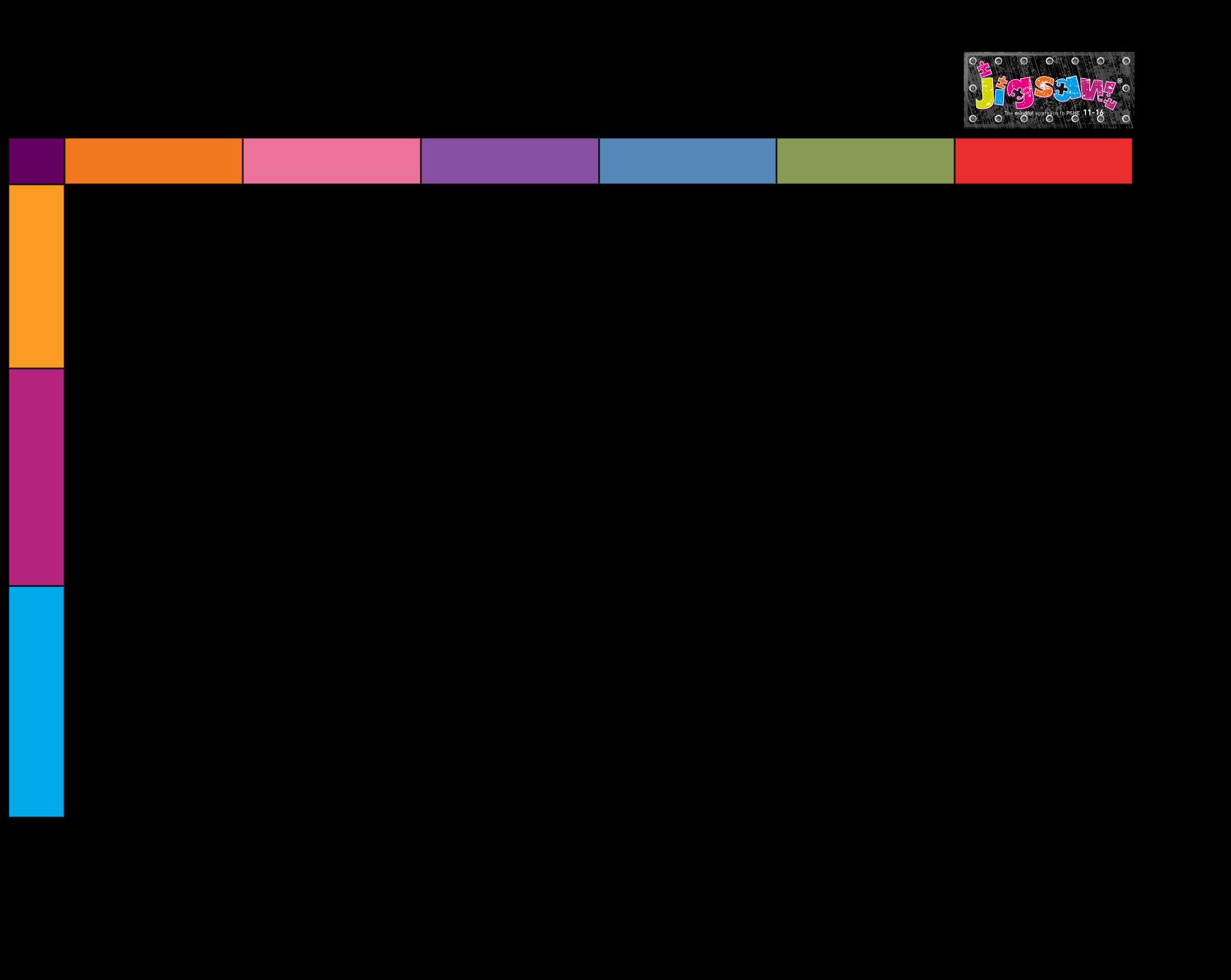
Unique me, differences and conflict, my influences, gateway emotions, belonging to a group, peer pressure, child-on-child abuse, online safety, consequences of sharing personal images, online legislation, online identity.
Bullying, prejudice and discrimination (positive and negative). Equality Act, bystanders, stereotyping, challenging influences, negative behaviour and attitudes, assertiveness, importance of being included.
Celebrating success, identifying goals, employment, learning from mistakes, overcoming challenges, planning skills, safe & unsafe choices, substances, gangs, control over your life, exploitation, emergency first aid.
Stress and anxiety, managing physical activity and mental health, effects of substances, legal consequences, nutrition, sleep, vaccination and immunisation, importance of information on making health choices, physical illness and medicine, mindfulness.
Characteristics of healthier relationships, consent, relationships and change, emotions and conflict within friendships, child-on-child abuse, rights and responsibilities, being discerning, assertiveness, social media vs real life, fake news, authenticity.
Puberty changes, reproduction facts, menstrual cycle, responsibilities of parenthood, IVF, types of committed relationships, media and self-esteem, self-image, brain changes in puberty, factors affecting moods, sources of help and support.
Self-identity, influences, family and identity, stereotypes, personal beliefs and judgements, managing expectations, first impressions, marriage and the law, beliefs and religions, protected characteristics, online and offline identity, active listening.
Positive change made by others, how positive behaviour affects feelings of wellbeing, social injustice, inequality, community cohesion and support, multi- culturalism, diversity, race and religion, stereotypes, prejudice, bullying, hate crime, fear and emotions, stand up to bullying, the golden rule.
Long-term goals, skills, qualifications, careers, money and happiness, ethics and mental wellbeing, budgeting, variation in income, positive and negative impact of money, online safety and legal responsibilities, gambling issues.
Types of health, nutrition and exercise, cardiovascular health and diabetes.
Risks, illegal and legal substances, dental health, skin health, vaccinations, peer pressure, teenage brain.
Positive relationship with self, social media, managing a range of relationships, child-on-child abuse, personal space, online etiquette, online privacy, bullying and personal safety, social media issues and the law, coercion, unhealthy balance of power in relationships, sources of support.
Types of close intimate relationships, legal status of relationships, behaviours in healthy and unhealthy romantic relationships, What makes a healthier relationship? Explicit materials and the law, dealing with unwanted messages. Alcohol and the law.
Perceptions about intimate relationships, consent, sexual exploitation, peer approval, child-on- child abuse, grooming, radicalisation, risky experimentation, positive and negative self-identity, groups, influences, social media, abuse and coercion, coercive control in groups, fitting in.
Protected characteristics, Equality Act, phobic and racist language, legal consequences of bullying and hate crime, sexism, ageism, positive and negative language, banter, child-on-child abuse, bullying in the workplace, direct and indirect discrimination, harassment, victimisation. Prejudice, discrimination and stereotyping.
Personal strengths, health goals, SMART planning, the world of work, links between body image and mental health, non-financial dreams and goals, mental health and ill health, media manipulation, self-harm, self-esteem, stigma, anxiety disorders, eating disorders, depression.
Misperceptions about young peoples’ health choices, physical and psychological effects of drugs and alcohol, alcohol and the law, alcohol and drug poisoning, addiction, smoking, vaping, drug classification, supply and possession legislation, emergency situations, first aid, CPR, substances and safety, sources of advice and support, mental health first aid.
Healthy relationships, power and control in intimate relationships, risk in intimate relationships, importance of consent, assertiveness skills, sex and the law, explicit materials and stereotypes, contraception choices, age of consent, family planning, consequences of unprotected sex, STIs, support and advice services.
Mental health stigma, triggers, support strategies, managing emotional changes, resilience and how to improve it, importance of sleep in relation to mental health, reflection on changes, benefits of relaxation, self expression, influences, body image.

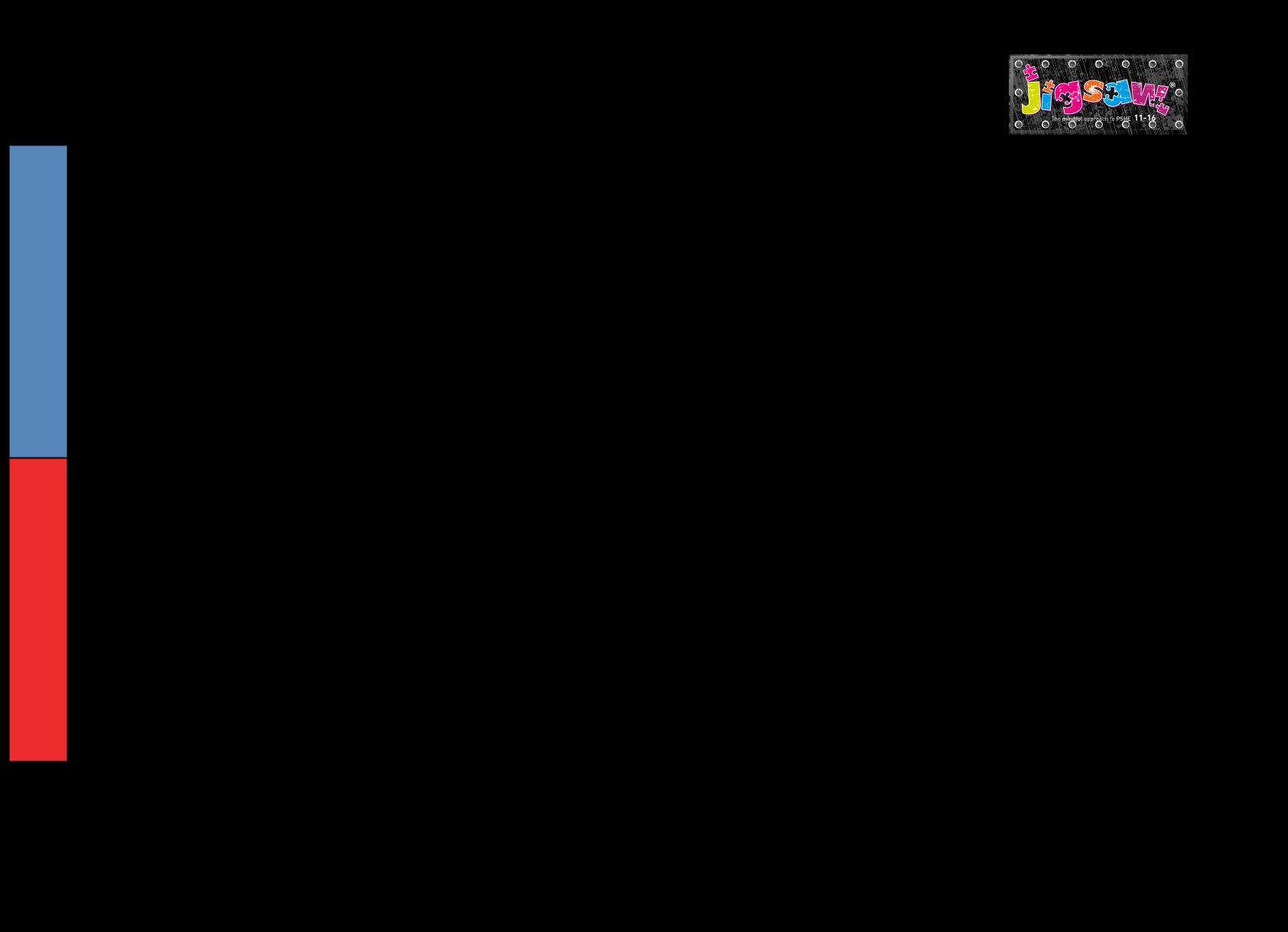
PSHE
Human rights, societal freedom, understanding safety in MY and beyond, ending relationships safely, stages of grief, loss and bereavement, child-on-child abuse, social media and culture, use of online data, threats to online safety, online identity, assessing and managing risk, the law and social media risk and emergency contacts, positive and negative relationships, GDPR/PDPA, managing screentime, sharing/ enhancing of images, managing different types of relationships.
Becoming an adult, age limits and the law, relationships and the law, consent, coercive control, child-on-child abuse, domestic abuse, honourbased, violence, arranged and forced marriages, the Equality Act, possession of drugs.
The law on internet use and explicit materials, social media concerns, sexting keeping safe, emergency situations, key advice, first aid, scenarios and consequences.
Equality in the workplace, in society, in relationships, Equality Act, disability and hidden disability, workplace expectations, rights and responsibilities, power and control in relationships, coercive control, benefits of multicultural societies, equality and inequality, my health.
Impact of physical and mental health in reaching goals, resilience, work-life balance, connections and impact of mental health. Balanced diet, vital organs, blood donation, benefits of helping others. Online profile and impact on future goals and employability.
Improving health, mental health, sexual health, bloodborne infections, selfexamination. Diet and longterm health, misuse of prescription drugs, substances and the body. Common mental health disorders, positive impact of volunteering. Common threats to health including chronic disease. Epidemics, misuse of antibiotics, organ donation, stem cells.
Sustaining long-term relationships, intimacy, healthy relationship with self, attraction, love, lust. Relationship choices, ending relationships safely, consequences of relationships ending, explicit materials vs real life, relationships and the media, discernment, healthier and less healthy relationships, coercion, abuse and the law, acceptable and unacceptable behaviours.
Impact of societal change on young people, role of media on societal change, reflection on change so far and how to manage it successfully. Decisionmaking, stereotypes in romantic relationships, sexual identity and risk, physical and emotional changes, family change, sources of support, personal safety, cycling, water safety, alcohol, transport.
Anxiety, solution focused thinking, sleep, relaxation, aspirations on; career, finances, budgeting, borrowing. Skills identification, realistic goals, gambling, financial pressure, debt, dream jobs, skills set, employment, education and training options. Long term relationship dreams and goals, parenting skills and challenges. Resilience, what to do when things go wrong.
Managing anxiety and stress, self-worth, identity, sleep, nutrition, exercise and mental health.
Relationships and consent, being ready for loving relationships, coercion, sexual harassment and violence. Puberty, hormones, fertility, testicular checks, menstrual cycle, IVF. Contraceptives and sexual health. Pregnancy choices including adoption, abortion, bringing up a baby. Health choices, mental, physical, sexual health.
Stages of intimate relationships, positive and negative connotations of intimacy.
Balance of power in relationships, addressing steroetypes, challenging harmful social and cultural norms.
Staying true to yourself in a relationship


